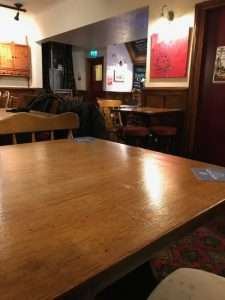“What did you get for Christmas?”
Even after the passing of just five days, how many people could accurately recall all that they were given? By the beginning of December 2022, who will remember even a small fraction of what they received this Christmas?
There are few Christmas gifts that I recall with a clarity sufficient to be able to say the Christmas at which they were received.
One Christmas gift remains clear in the memory, fifty-three years later.
For my eighth birthday in October 1968, I had received a bicycle – an RSW 14. The small wheeled bicycles were the rage at the time, and were ideal for country lanes and tracks and the odd field and rough ground.
The problem was that the winter days were so short, there was hardly time to ride it around. Getting out of school at 3.30, by the time we got home there was not much daylight left.
For Christmas 1968, I was promised lights for the bicycle. It was a great gift, it meant that hours of time that were otherwise lost – even children’s television in those days lasted just one hour – could be spent out on the bicycle.
To suggest that getting lights for your bicycle was a brilliant gift would sound odd to people now. Do kids even ride around on bicycles for no reason other than just riding around? Maybe it would not even be safe now to allow an eight year old to go off riding country lanes – 1968 was still an age of innocence in rural Somerset.
Maybe though, more joined up thinking by parents might prompt very different choices for Christmas presents.
Instead of responding to demands of children created chiefly by slick marketing and social media campaigns, thinking what might really make a difference might create very different Christmas shopping lists. Enabling children to do and to achieve things for themselves would seem a gift with far greater potential for long-term good than the latest version of Grand Theft Auto or model of smartphone.
The creating of capacity for autonomous action, the allowing of people to freely make their own choices probably applies to much more than Christmas presents.
Looking at the billions poured into overseas development aid programmes without any noticeable improvement, you would wonder if my Dad had more idea about how to do something that might make a real difference for someone than legions of aid agency staffs.



